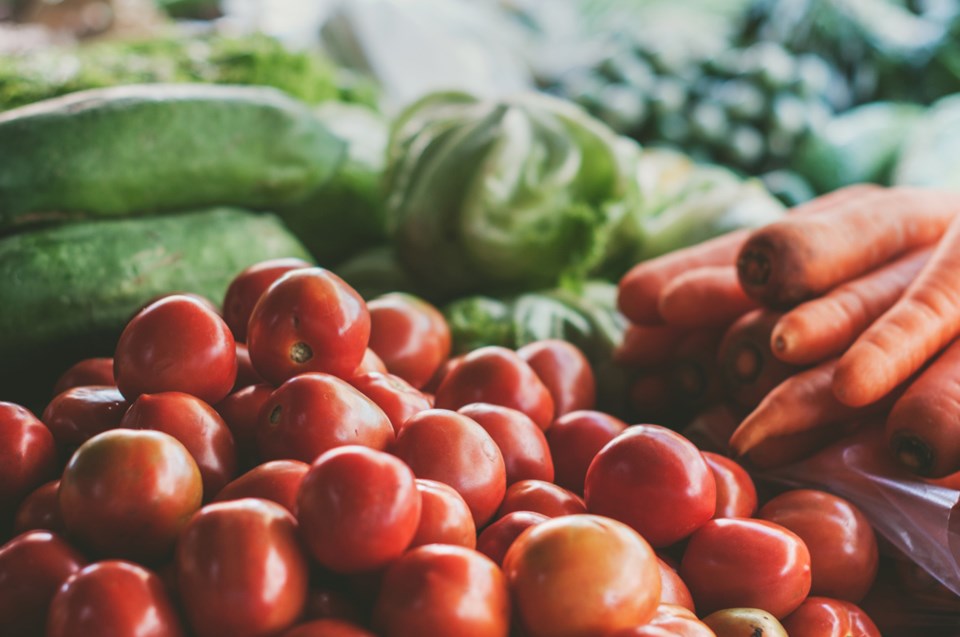Eating a variety of fruits and vegetables will help to increase your intake of a range of valuable nutrients. One of the best ways to ensure variety in your diet is to eat seasonally. In northern British Columbia we're lucky to have a large selection of B.C.-grown produce available year-round. Whether it's fresh apples in October or U-pick raspberries in July, northern B.C. has more to offer than just root vegetables.
Although the summer months highlight the majority of fresh produce the region has to offer, in spring we start to see local asparagus, fiddleheads and rhubarb appearing in farmer's markets. Recipe recommendations can accompany your purchase of an unfamiliar fruit or vegetable when buying directly from a grower. The benefits of buying and eating seasonally available local produce can also be seen in improved taste, nutrition and value.
Non-seasonal produce is typically harvested before it is ripe, it is then cooled to slow ripening, stored and transported a significant distance where it will be sold and consumed. When certain types of produce are harvested before they are ripe, they don't have the opportunity to reach their highest nutrient levels. For example, a tomato may turn a dark red colour several days after picking but it will likely not be as sweet or nutrient-packed as it would have been if allowed to ripen on the vine.
When produce travels thousands of miles to get to our dinner table it ages and valuable nutrients can degrade. Green vegetables such as asparagus are rich in folate which decays over time. The amount of Vitamin C in your Californian strawberries could also be significantly less than when they were picked several days prior. In-season produce is fresher and this can mean it has a higher nutrient content.
Choosing seasonal produce can also allow you to get the most value for your dollar. Fruits and vegetables picked locally in-season are in peak supply and this means the cost of growing, harvesting and transporting those fruits and vegetables may be lower. Those savings are often passed on to the consumer. Community programs also support improved access to fresh local produce.
Recently the B.C. government announced the expansion of the Farmers' Market Nutrition Coupon Program, which supports British Columbians facing economic barriers through provincial funding and community donations. Community partner organizations, including several in Prince George, hand out coupons to lower-income families and seniors participating in their food literacy programs. Coupons can then be used to purchase fresh produce and a variety of other foods available at participating farmer's markets. The program also helps to support local farmers by increasing sales.
For more information on what produce is in season and where to find your local famer's market, or to donate to the Nutrition Coupon Program, visit the BC Association of Farmers' Markets at www.bcfarmersmarket.org.
Kelsey Leckovic is a registered dietitian with Northern Health working in chronic disease management.



